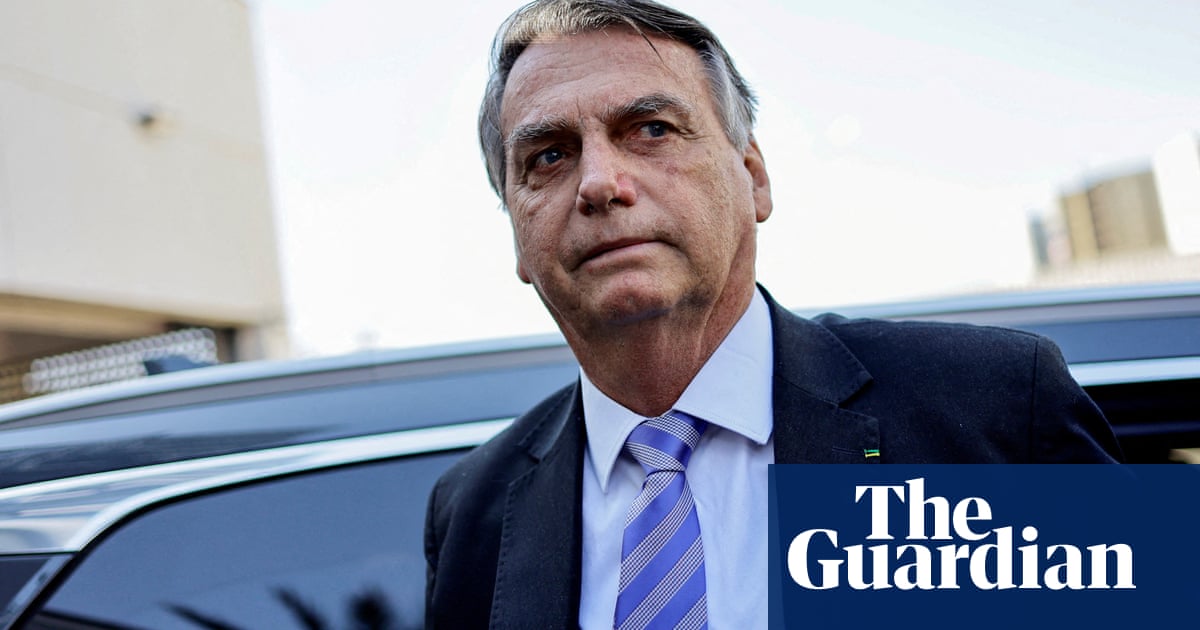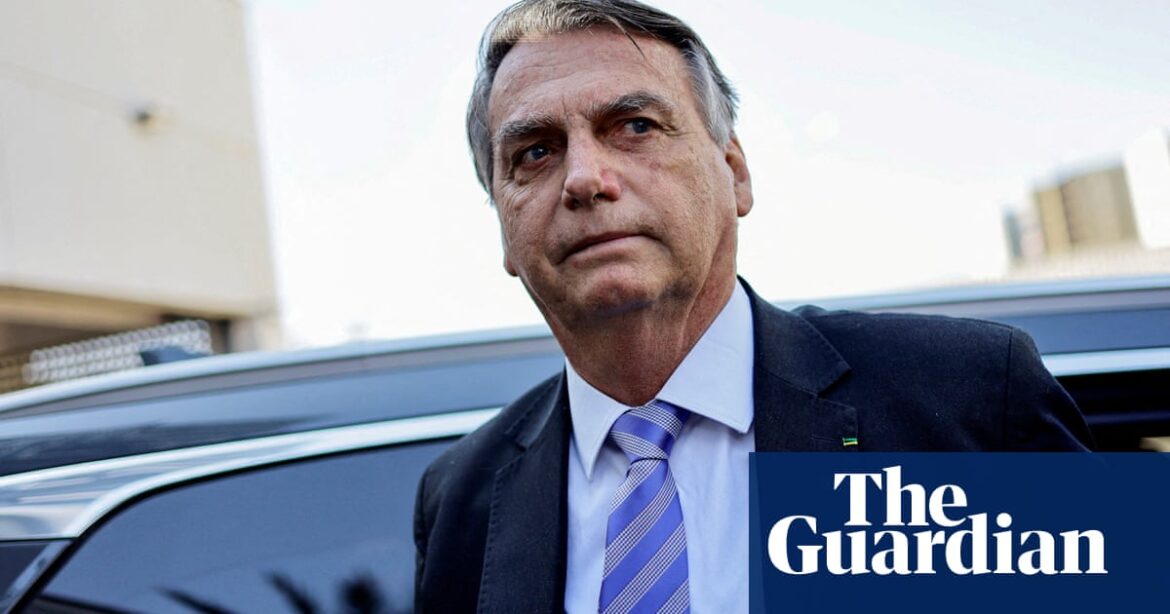
Brazil’s former president Jair Bolsonaro has been charged with allegedly masterminding and leading a far-right conspiracy to cling to power through a military coup.
The South American country’s attorney general, Paulo Gonet, levelled the charges against the radical rightwing populist and several key allies on Tuesday night. He accused Bolsonaro and six key associates of leading a criminal organization with an “authoritarian power project”. The alleged plot, he wrote, included a plan to poison Luiz Inácio Lula da Silva and shoot dead Supreme Court Justice Alexandre de Moraes, a foe of the former president.
Bolsonaro, who experts say could face between 38 and 43 years in jail if convicted, stands accused of crimes including being involved in an attempted coup d’état and an armed criminal association and the violent abolition of the rule of law. He has repeatedly denied breaking any laws and on Tuesday told reporters he was “not at all worried about these accusations”.
The charges come three months after a bombshell 884-page federal police report accused Bolsonaro, who governed Brazil from 2019 until 2022, of playing a lead role in planning and organising a conspiracy designed to stop the leftwing victor of Brazil’s 2022 presidential election, Luiz Inácio Lula da Silva, taking power.
Bolsonaro lost that vote to Lula but refused to accept defeat and on 8 January 2023 his hardcore supporters ran riot in the capital Brasília, trashing the presidential palace, congress and the supreme court in a bid to overturn the internationally accepted result.
The attorney general’s office accused another 33 people of being part of the alleged plot including Bolsonaro’s former spy chief, the far-right congressman Alexandre Ramagem; his former defense ministers Gen Walter Braga Netto and Gen Paulo Sérgio Nogueira de Oliveira; his former minister of justice and public security, Anderson Torres; his former minister of institutional security Gen Augusto Heleno, and the former navy commander Adm Almir Garnier Santos. Netto has denied involvement in a coup plot. The other men are yet to publicly comment on the allegations.
Perhaps most shockingly, the attorney general’s 272-page report claimed Bolsonaro had been aware of an alleged plot – which it said had “received the sinister name of ‘Green and Yellow Dagger’” – to sow political chaos by assassinating top authorities including Lula and the supreme court judge Alexandre de Moraes.
“The plan was thought up and brought to the attention of the president of the republic [Bolsonaro], who agreed to it,” the document claimed. “[The plot] cogitated using weapons against the minister Alexandre de Moraes and killing Luiz Inácio Lula da Silva with poison.”
News that Bolsonaro had been officially charged was welcomed by opposition politicians and progressive Brazilians who despise the former president for his anti-scientific handling of the Covid pandemic, his hostility to minorities, Indigenous communities and the environment, and his relentless attacks on Brazil’s democratic system.
Gleisi Hoffmann, the president of Lula’s Worker’s party, called the formal accusations, “a crucial step in the defense of democracy and the rule of law”.
Bolsonaro’s senator son, Flávio Bolsonaro, rejected the charges on X, claiming there was “absolutely NO PROOF against Bolsonaro”.
The case will now be considered by the supreme court whose judges will decide the fate of Bolsonaro and his alleged accomplices. That is expected to happen in the first half of this year.
Historian Carlos Fico, one of the leading experts on the dictatorship that seized power after Brazil’s 1964 military coup, said it was particularly noteworthy that those charged included three high-ranking military figures: Gen Braga Netto, Gen Heleno and Adm Garnier Santos.
“The most significant aspect is not Bolsonaro’s indictment – he is, after all, an avowed admirer of the military dictatorship and of torture – but rather the indictment of the generals,” said Fico, a history professor at Rio’s federal university. “The indictment of generals through a judicial process led by the federal police, with the endorsement of the country’s attorney general and [that is] set to be judged by the supreme court, is unprecedented in Brazilian history.”
“Over the years, numerous military coup plotters were never properly punished and ended up being granted amnesty,” added Fico, referring to those who were never prosecuted for crimes committed during the dictatorship, which ended in 1985. “I hope that this time, there will be no amnesty.”
Source: theguardian.com



